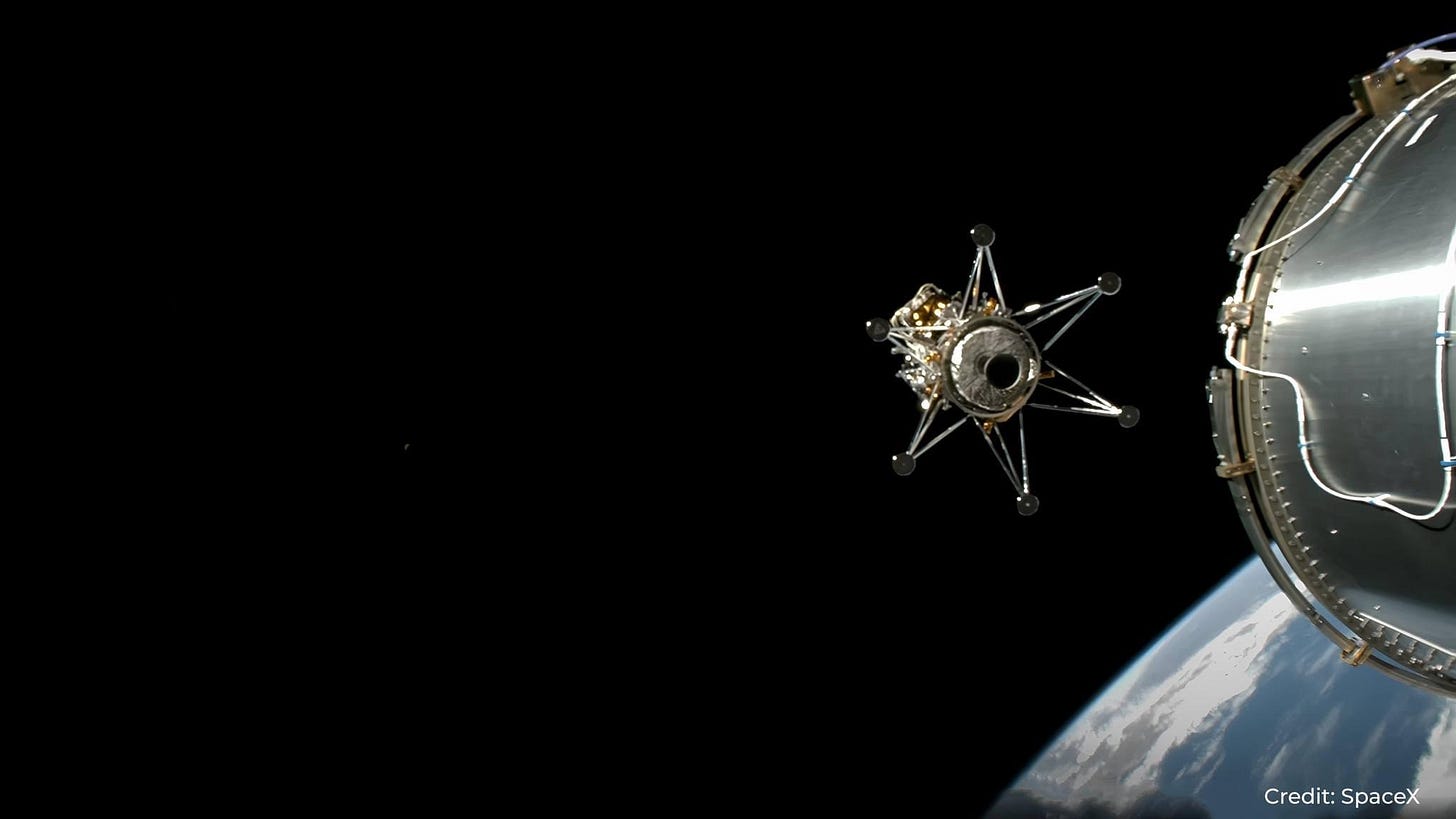Just now, Intuitive Machines achieved a successful touchdown on the surface of the moon. It was the first American soft (?) landing on the moon since 1972!
It was pretty exciting watching the descent in real-time on the NASA channel as the gorgeous lander Odysseus touched down on the dusty surface 190 miles from the moon’s south pole. I felt myself there! Maybe not in the physical sense, but a poem I translated from the Japanese was included in Samuel Peralta’s Lunar Codex Time Capsule, which was included as part of the mission. The invitation came as such a surprise, when he asked me if I wanted to be a part of his project.
And I answered in a nanosecond: YES!
Samuel Peralta is a particle physicist, who is also a writer, an artist, and a visionary—and a new member of the Advisory Board of the Interstellar Foundation. Coming up with his Lunar Codex Time Capsule project during the dark days of Covid, he designed a time capsule to be put on a tiny disk that includes art, poetry, books, music, and film from over 30,000 contemporary creative artists in over 150 countries.
Awhile back, he and I collaborated on several translations of Japanese poet Takamura Kotaro’s Chieko poems. The sculptor and poet Takamura Kotaro (1883-1956) is perhaps best known in Japan for his “Chieko Poems,” which are a chronicle documenting the evolution of the poet’s relationship with his wife, as well as a celebration of his love for her.
“The Love which moves the sun and other stars…”
Oh, how happy I was that Sam chose a poem from the early days of their relationship, when the two were deeply in love.
Below is the translation, first published in the University of Iowa’s journal of translation, Exchanges. The layout is gorgeous and on their site you can see the translation alongside the original Japanese poem.
Awakening on Winter Mornings
On winter mornings
Even the River Jordan is covered with a thin layer of ice
In my bedroom wrapped up in my white blanket
I imagine how John the Baptist felt as he baptized Christ
I imagine how Salome felt as she held John’s severed head
On winter mornings the sound of wooden clogs
Echoes shyly from the street
Let me merge with nature’s immensity
Like the silently rotating constellations
I too must get moving
Then the sweet smell of mocha
Wafts into my room
Like a spirit reborn with eyes wide awake
At that moment I know
With the coolness of a mathematician
There are strange rhythms
Like waves rippling in our human world
Wake up, my love
On winter mornings
Songbirds will be singing outside your suburban home
For my love has opened her dark eyes by now
Stretching her arms like a young girl
Enjoying the beautiful morning light
I imagine her smiling as she listens to the songbirds singing
And seized by this moment
Tapping on my white blanket
I sing a hymn to love
On winter mornings
My heart is full
And I shout for joy
A pure and good life this is
The haze appears as gold dust
Across these amber blue skies
As an English Pointer begins barking in the distance
This yearning, this hunger arises
And before long, I am yearning for my love again
On winter mornings
I bite into the ice of the River Jordan
Translator’s Note
In this early poem, written before they married, Kotaro calls Chieko “my love” (愛人). He doesn’t call her his sweetheart or his girlfriend, which would have been appropriate for the time period (1912), but rather uses a term closer in spirit to “my lover.” This was a dramatic use of passionate language in the Japan of that time period. Also surprising to readers was his handling of European literary images and tropes from the Bible. At the end of the Meiji period, Oscar Wilde’s Salome had taken Japan by storm. The famous prints by Aubrey Beardsley illustrating Wilde’s play were also enormously popular.
Will be writing more about it on Monday in an essay at 3 Quarks Daily.






I love the quirky details! So cool that your words are on the moon!
Your words landed on the moon, a sensational achievement! Your translation is beautiful but I think the poem suffers somewhat from some of its Western references, especially 'English Pointer' which brought me crashing back to earth.